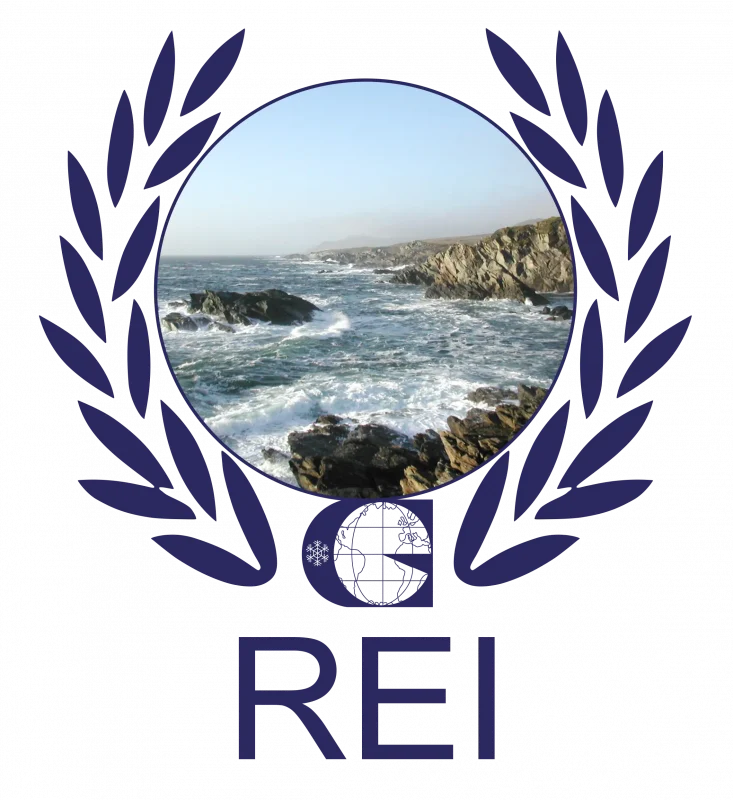Renewable Energy Insights
How Do Companies Pursue Net Zero?
What does net zero mean for a company?
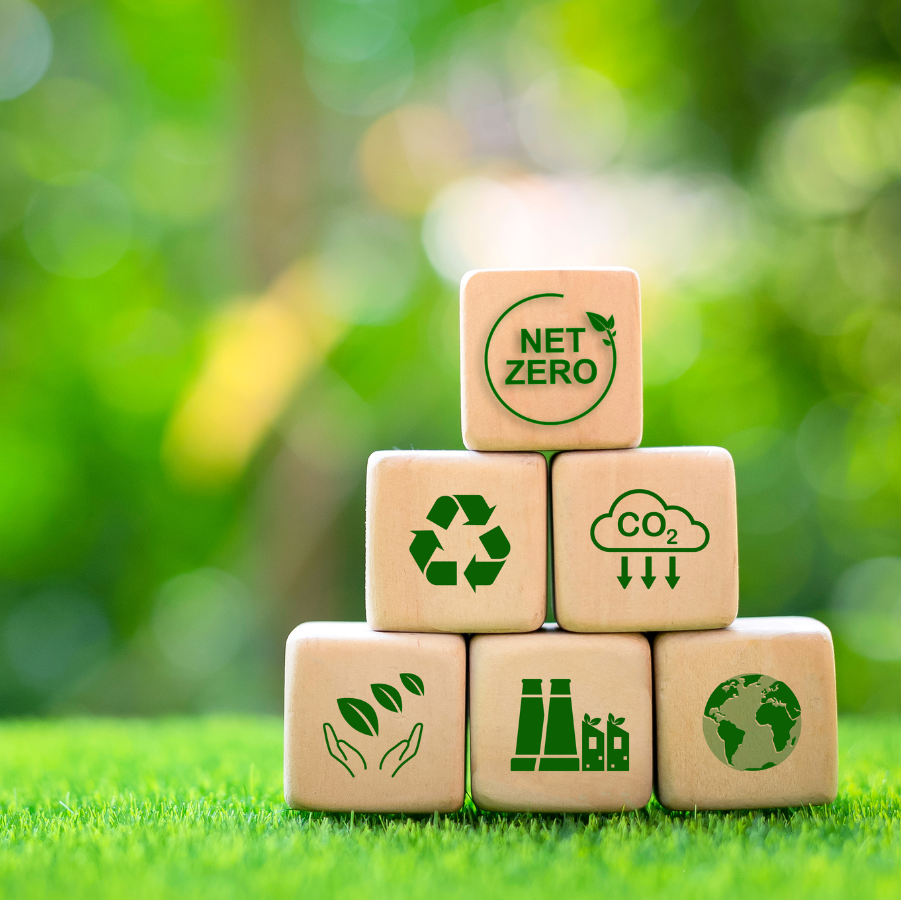
When a company aims to achieve net zero, this means that they are striving to ensure that they do not add more greenhouse gases to the Earth’s atmosphere than they remove. For a business to pursue net zero, its activities, supply chain, products and services should result in no net impact on greenhouse gas emissions[1]. This can be done by reducing the emissions they produce by improving efficiency, innovating products, investing in renewable energy generation and procurement or by employing offsetting practices to balance out the emissions they do produce. Offset practices may include utilising carbon capture, usage and storage (CCUS) or purchasing carbon credits.
Why become net zero?
The purpose of the net zero initiative is to avert the impacts of climate change and preserve a liveable planet. To do this the global temperature increase needs to be limited to 1.5°C above pre-industrial levels. Currently, the Earth is already about 1.1°C warmer than it was in the late 1800s, and emissions are continuing to rise. To keep global warming to less than 1.5°C, emissions must be reduced by 45% before 2030 and reach net zero by 2050[2].
For businesses, the advantages of contributing to the net zero movement go beyond those of environmental impact. Many companies use their green energy efforts as part of their marketing to attract climate-conscious customers[3]. As the net zero initiative gains popularity, it is likely that a reputation for environmental responsibility will increase appeal to investors. Reducing waste can lower energy and water costs while also avoiding potential carbon and waste taxes[4]. Many companies have announced plans to pursue net zero and give regular updates on the progress of these efforts. In this article, the Renewable Energy Institute will consider three companies and examine their efforts to pursue net zero.
Sky

Sky is a European media and entertainment company. Operating across 6 countries with 23 million customers, Sky provides apps, entertainment, sports, news, arts, and original content[5]. It was the first media company to become carbon neutral in 2006[6].
Sky has publicly declared its goal of achieving net zero carbon emissions before 2030 by radically changing many aspects of the company from its supplier to its products[7]. Currently, Sky’s own operations are 100% powered by renewable energy. All engineer vehicles are electric and 100% of its product packaging is free from single-use plastic. It is also part of “albert”, the television industry’s sustainability consortium[8]. In 2021, Sky was one of the official sponsors of COP26, an international climate change summit[9]. It also created the Sky Zero Footprint Fund, a £2 million initiative which helps brands accelerate their own sustainable initiatives with advertising support.[10]
Sky has also practiced offsetting through reduction or removal projects around the world. These include renewable energy projects in India and China, reforestation in Mexico and a water infrastructure project in Kenya. Moreover, Sky supports a reforestation project in Scotland that aims to plant around 200,000 native trees, delivering biodiversity, landscape, and community benefits[11].
To achieve net zero across its entire value chain by 2030, Sky has announced further changes that it intends to make. At present, Sky’s engineer vehicles are electric, but by 2030, the company intends for its entire vehicle fleet to transition to net zero emissions. Sky aims to make its tech products more energy efficient; make its new film and TV studios the most sustainable in the world and assist all companies working with Sky to achieve their own net zero carbon production. Along with this, Sky also intends to help its millions of customers understand and reduce their carbon footprint. The Science Based Targets Initiative validated these measures[12].
Quorn
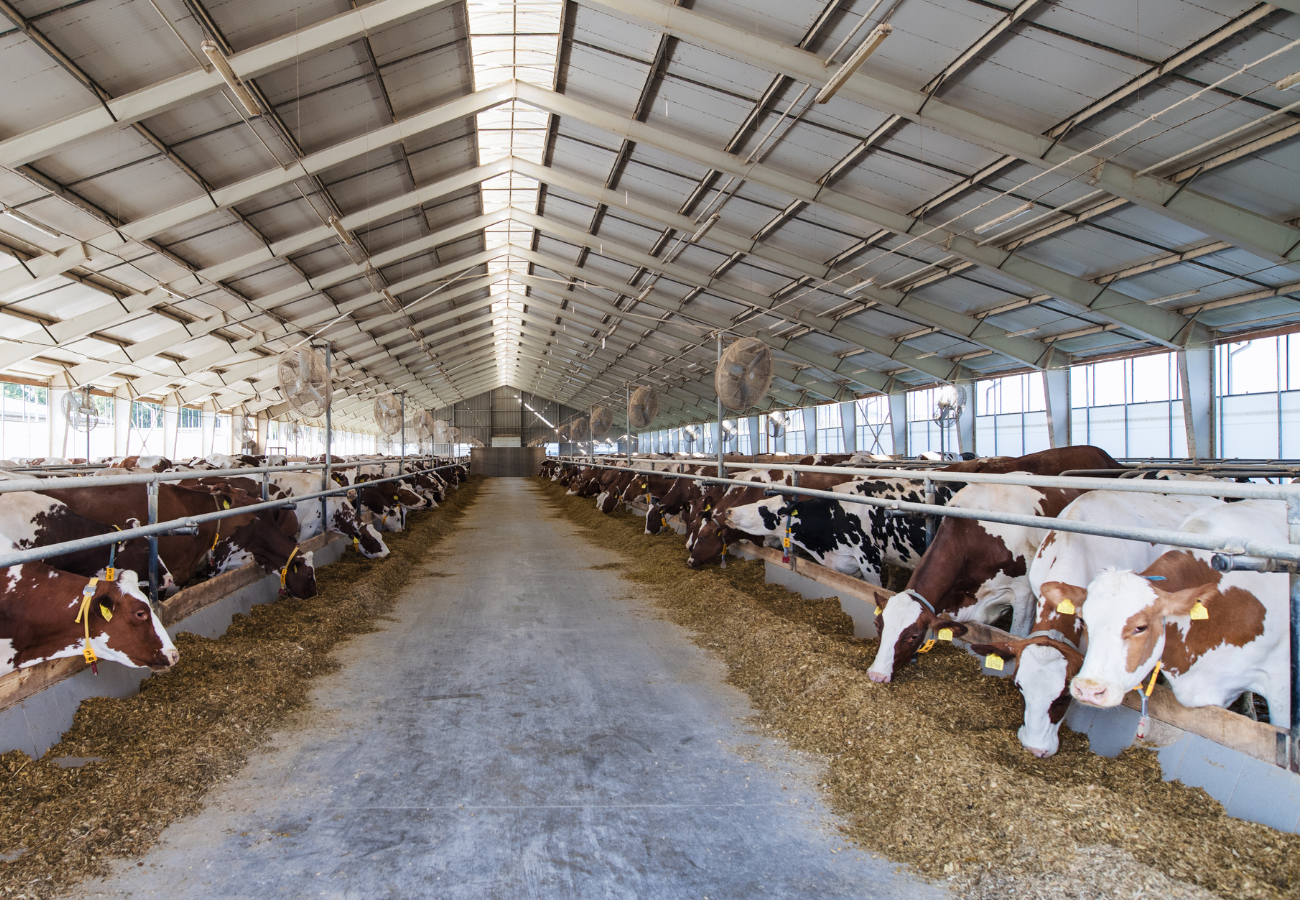
Quorn is a UK company that manufactures meat substitute products to be sold in Europe. Having a minimal carbon footprint is a key aspect of Quorn’s branding. Quorn frequently focuses on the fact that one-third of global greenhouse gas emissions come from food systems, with the footprint from animal products contributing over 50% of the food industry’s global carbon emissions[13], positioning its products as a more environmentally friendly choice.
Quorn became the first global meat-free brand to have the carbon footprint of its products third-party accredited. It also became the first major brand to introduce carbon labelling on its products. These labels help customers understand the carbon impact of their purchasing behaviour[14]. Quorn calculates the emissions associated with each of its products and has these findings verified by the Carbon Trust. These emissions include those created by its ingredients, factory, transport and packaging processes.
Since 2012, Quorn has reduced its relative carbon emissions by 33% and its water usage by 16%. Currently, 87% of its electricity comes from renewable sources. Quorn has partnered with leading food services provider Sodexo, to create Carbono Cero, the world’s first carbon-neutral solution for food services. This effort could save at least 7,296 tonnes of carbon each year[15].
Like Sky, Quorn has publicly announced its net zero intentions. Its declaration has 2 main promises. Firstly, it hopes to achieve net zero emissions within its own operations by 2030. It then wishes to achieve net zero within its whole supply chain by 2040 by supporting, celebrating and demanding climate action from all partners[16]. Quorn recently declared its intention to incorporate green hydrogen into its energy supply chain at a production facility. This move has the potential to remove nearly 13,200 tonnes of CO2 emissions a year, which is equal to taking 7,600 cars off the road[17]. Quorn has stated that by 2025, 100% of its packaging will be reusable, compostable or recyclable[18].
Despite Quorn’s efforts, it has attracted critics. One of its products advertisements drew complaints that its claims to help consumers reduce their carbon footprint and positively affect climate change were misleading. The advert was deemed “likely to mislead” (an intention which Quorn denied) by the governing watchdog [19].
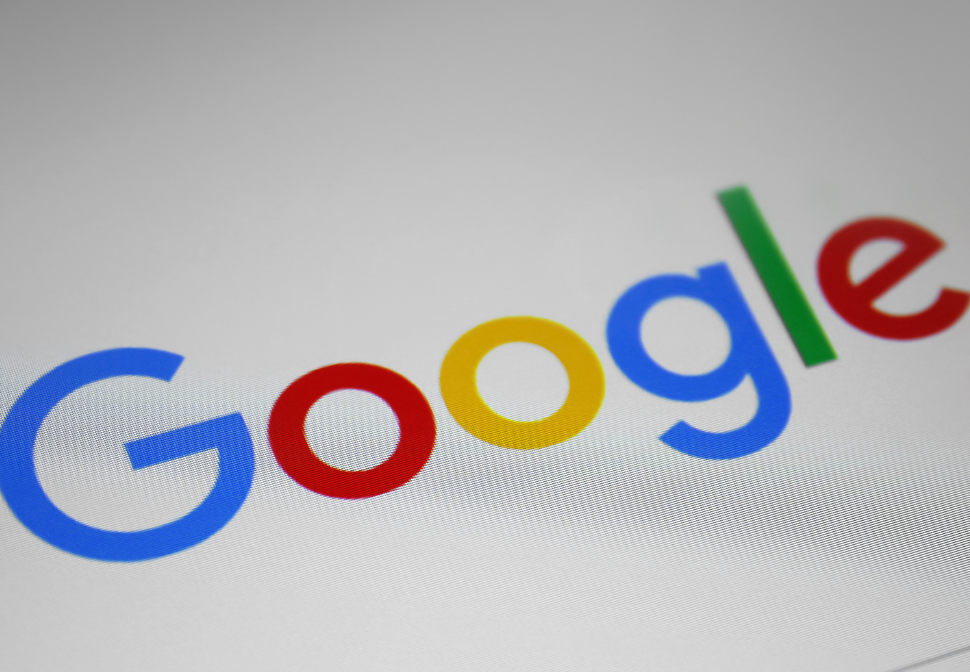
Google is an American multinational corporation and technology company. It is one of the most widely known companies in the world and operates in online advertising, search engine technology, cloud computing, computer software, quantum computing, e-commerce, consumer electronics, and artificial intelligence[20]. Google has one of the most aggressive and far-reaching sustainability plans in the tech world[21], with its plans including leading by example, supporting partners in their own net zero efforts and enabling others to make sustainability-conscious choices. Google’s net zero plans have positioned it as a global leader in the low-carbon transition[22].
Like Sky and Quorn, Google has publicly declared its aims to achieve net zero emissions by 2030. For Google, this applies to all of its own operations and its entire value chain[23]. Its goals incorporate operating solely on carbon-free energy such as wind and solar and investing in nature-based and technology-based carbon removal solutions to neutralise any remaining emissions.
Google was the first major company to reach carbon neutrality in 2007. It also reached its goal of matching its energy use with 100% renewable energy purchases that same year[24]. In 2020 it claimed to have invested enough in carbon credit schemes to offset all carbon created to date[25].
At present, Google calculates and publishes its carbon footprint through global organisation, CDP. Carbon reduction efforts are focused on building energy efficient, low carbon facilities and the electrification of all offices. Utilising sustainable travel and commuting and engaging with its supplier chain has also been a main focus. Google has been making efforts to increase its purchase of locally produced carbon free energy and investing in the creation of this energy. Investing in and using carbon removal technologies and strengthening carbon credit markets also play a major role.
Conclusion
Companies who pursue net zero should focus not only on ensuring that their own operations support it, but also on their entire supply chain. This has been demonstrated by Sky, Quorn, and Google, all of whom have publicly declared their commitment to this goal. Making these aspirations public and being transparent about progress are key aspects of these companies’ sustainability plans. This enables them to maintain trust among stakeholders and serve as examples to others.
While net-zero targets have guided the majority of official climate initiatives, they may not suffice to prevent the worsening of the global warming crisis. Therefore, companies may be better advised to explore alternative models and objectives to guide their efforts. These measures are discussed in our article, ‘Net Zero vs Absolute Zero’.
Discover how you and your company can contribute to the fight against climate change by enrolling in the REI’s accredited Net Zero Consultant Expert Certificate. This pathway combines our Global Energy Transition, Hydrogen Energy and Electric Vehicles courses, to allow you to delve further into how we can reach our climate goals.
Additionally, you can expand your knowledge of carbon accounting and carbon capture, usage and storage (CCUS) through the accredited Carbon Finance Consultant Expert Certificate. Providing access to 3 accredited courses and 80 hours of continuous professional development, this is a great starting point for those looking to start or grow a career in the carbon sector.

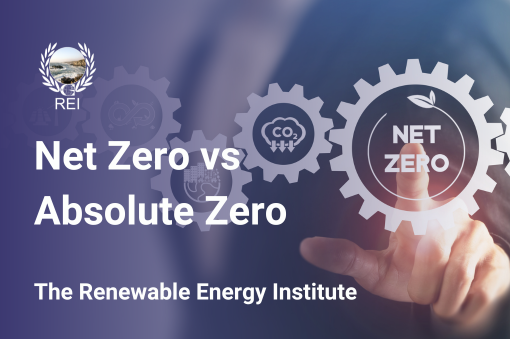
Read Next: Net Zero vs Absolute Zero
[1] https://www.scottish-enterprise.com/learning-zone/business-guides/net-zero-emissions-checklist-for-business
[2] https://www.un.org/en/climatechange/net-zero-coalition
[3] https://www.british-business-bank.co.uk/business-guidance/guidance-articles/sustainability/net-zero-how-being-carbon-neutral-can-help-your-business-grow
[4] https://www.nibusinessinfo.co.uk/content/advantages-becoming-net-zero-business
[5] https://www.skygroup.sky/about-us
[6] https://www.skygroup.sky/Impact/sky-zero
[7] https://variety.com/2020/tv/global/sky-net-zero-carbon-1203491893/
[8] https://www.skygroup.sky/Impact/sky-zero
[9] https://www.gov.uk/government/news/sky-to-sponsor-the-cop26-summit-in-glasgow
[10] https://www.creativebrief.com/bite/voices/sky-zero-footprint-fund-returns-to-accelerate-sustainability
[11] https://www.carbonneutral.com/examples/sky
[12] https://corporate.comcast.com/press/releases/skys-2030-net-zero-targets-approved-science-based-targets-initiative
[13] https://www.quorn.co.uk/carbon-footprint
[14] https://www.theguardian.com/environment/2020/jan/09/quorn-to-be-first-major-brand-to-introduce-carbon-labelling
[15] https://uk.sodexo.com/media/news-room/quorn-and-sodexo-launch-carbon
[16] https://www.quorn.co.uk/whats-new/our-net-positive-ambition-and-climate-goals
[17] https://foodmatterslive.com/article/quorn-explores-use-of-green-hydrogen-to-meet-net-zero-targets/
[18] https://www.which.co.uk/reviews/shopping-sustainably/article/green-brands/green-brands-quorn-a3pJs8F8rGeG
[19] https://www.foodnavigator.com/Article/2020/09/30/Quorn-advert-banned-over-carbon-footprint-claim-It-was-never-our-intention-to-mislead-consumers
[20] https://en.wikipedia.org/wiki/Google
[21] https://fortune.com/2022/09/12/google-has-one-of-big-techs-most-aggressive-sustainability-plans-heres-its-3-step-playbook-for-helping-the-planet/
[22] https://www.sustainability.com/thinking/an-interview-with-google/
[23] https://sustainability.google/operating-sustainably/
[24] https://www.sustainability.com/thinking/an-interview-with-google/
[25] https://www.bbc.co.uk/news/technology-54141899
